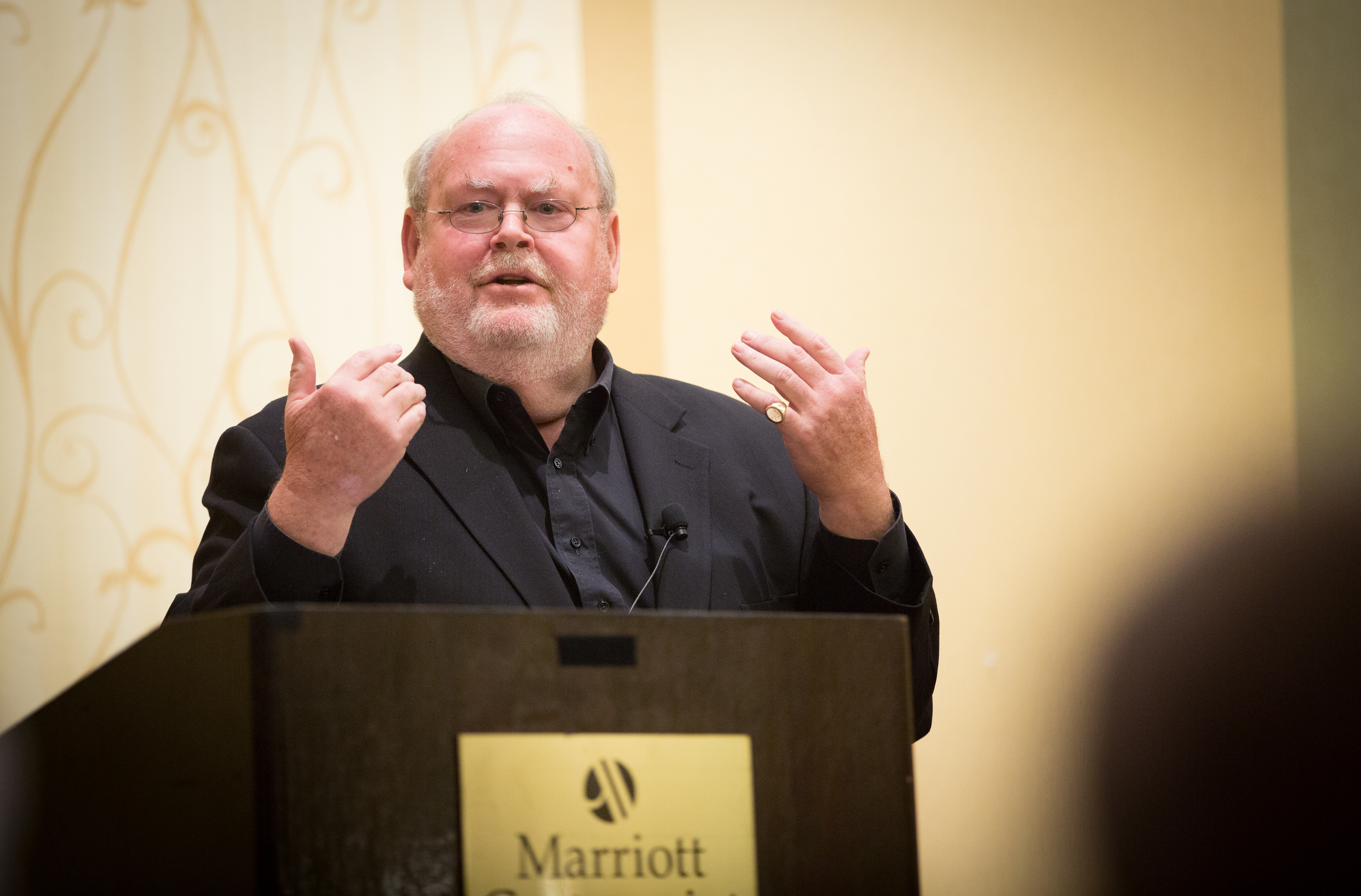 |
| Thomas Lynch |
OUWB invited medical students and the community to a presentation titled “Last things. Good medicine. Going the distance.” The presenter, Thomas Lynch, funeral director and nationally known author and poet, described how he manages the grief and loss of the families he comes in contact with in his profession. He has been in the family business since 1974 and operates the Milford, Michigan location of the Lynch & Sons Funeral Homes.
Lynch’s understanding of this topic has inspired him to write award-winning books, essays and poetry about undertaking and other topics related to dying. His articles have appeared in international newspapers such as the London Times.
“While we talk about grief and loss, to hear from someone like Tom Lynch whose entire professional expertise emerges from decades of engaging with and reflecting on grief and loss as a deeply human, deeply existential experience,” said Jason Wasserman, OUWB course director, medical humanities and clinical bioethics. “That perspective is invaluable because it comes from outside of medicine proper, but strikes right at the core of how physicians need and want to engage and collaborate with patients.”
Lynch gave the medical students a perspective that the classroom could not. When a student asked him if he has a way to escape from the realities of his job, he emphasized that he does not de-sensitize himself from the death and dying aspects of his work because it is real, nor does he pretend that bodies are not real, as he prefers to stay in touch with reality.
The evening also included group discussions using case studies about difficult situations that students may find themselves in with their patients some day.
“I think these sorts of events are significant and beneficial for a number of reasons. First, addressing issues related to humanism and ethics is part of our core mission to train physicians who are both competent and compassionate. Second, it gives OUWB a chance to host an event where not only our students but various other members of our community can come together for stimulating discussion, which isn't always possible, or doesn't always have the same character, when it happens in the curriculum proper,” said Wasserman.

